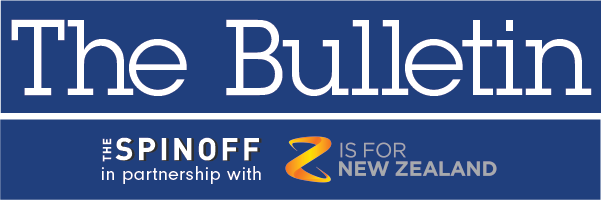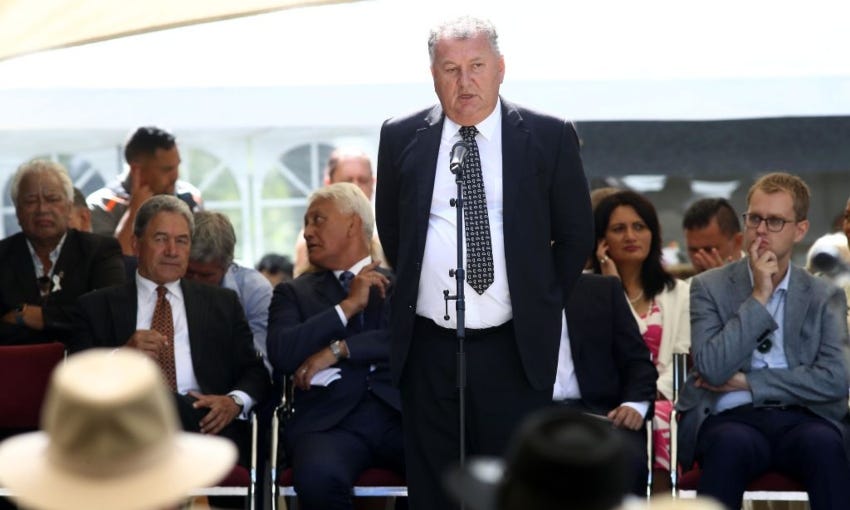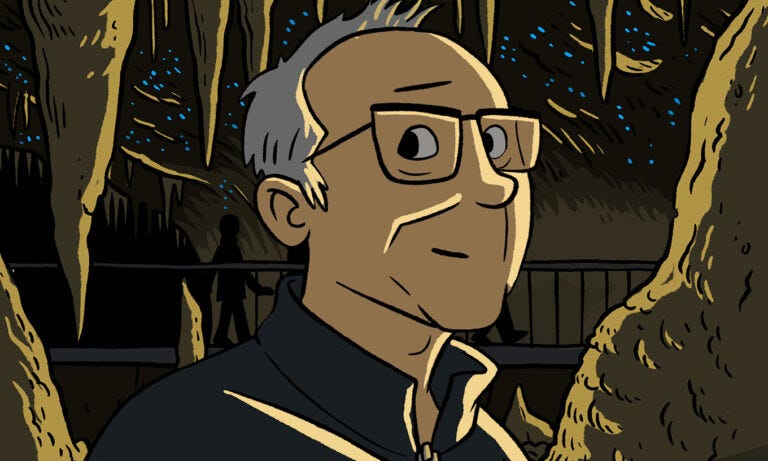Can Shane Jones reclaim Northland and save his party?
NZ First's fortunes could all come down to one crucial seat

Good morning and welcome to The Bulletin for Monday 8 June, by Alex Braae for The Spinoff. Presented in partnership with Z Energy.
In today’s edition: Shane Jones confirms run in the crucial seat of Northland, Kiwifruit sales soar amid global pandemic, and questions on colonial monuments erupt around the world.

Image: Shane Jones speaking at Waitangi earlier this year (Getty Images)
The course of politics over the last five years was arguably set during the tumultuous Northland by-election of 2015. After the resignation of former MP Mike Sabin, the race looked for all the world like it would be an orderly handover to National's candidate, before NZ First leader Winston Peters jumped in and won an upset. The race laid the groundwork for what would become the Labour-NZ First coalition, and cemented NZ First's political identity as a party for the regions. Peters' post-election party was also notable in that it was attended by Shane Jones, who subsequently became an NZ First MP, and may now need to pull off a similar surprise to ensure his party's survival.
The formal announcement came over the weekend that Jones would be the party's candidate for Northland. He won't be running against his party's leader – Peters subsequently lost the seat back to National in 2017. It is widely considered NZ First's best chance at an electorate seat, and with that the security of not having to reach the 5% threshold, which based on current polling is by no means assured. As Newshub's story about the announcement noted, it isn't exactly a surprise selection – Jones has been hinting heavily at such a run for years. In his transactional political style, he has ensured that a huge share of Provincial Growth Fund money has made its way to the region. With NZ First also pushing heavily to move Auckland's port to Whangārei, those in the region who want such an outcome have a clear reason to vote for him. For more on the role Jones has played as a champion of various primary industries, this piece about the delayed rollout of cameras on commercial fishing boats by Justin Giovannetti is an excellent read.
If he does win, which way would NZ First go? That is a bit up in the air at the moment. New National leader Todd Muller has left the door ajar to working with NZ First after the election, even if the party's formal position remains that they are out of the picture. NZ First is also likely to spend the next several months raising hell with Labour, to highlight the differences between the two parties. Radio NZ contributor Peter Wilson writes that the last week saw increasing pressure on PM Ardern over the perception of stability of the government she leads, because of disagreements with NZ First. It could be that it's just for show, and that the two parties are getting along fine behind the scenes – or the relationship genuinely could be deteriorating. At this stage, Labour has said it has no plans to do any electorate deals with NZ First.
But we might be getting ahead of ourselves here, because can Jones actually win the seat? Writing in February, veteran columnist John Armstrong wrote on One News that Jones comes into the race at a significant disadvantage compared to when Peters won. In short – there's only one Winston Peters, and Jones is not on his level, having never actually won an electorate despite several attempts. There's the simple electoral maths of the seat, which strongly leans towards National, even if the incumbent Matt King only currently holds a slim majority. And you can't go past the fact that the Northland by-election in 2015 was unique, not least because of the circumstances of the former MP's departure, and the perceptions voters had of that.
In contrast, commentator and academic Grant Duncan told Newshub that Jones had a real chance, in a story that also included sympathetic comment from the local Federated Farmers president John Blackwell. Commentator Shane Te Pou gave Newstalk ZB a similar assessment, saying the chances were particularly good if Labour "tone it down a bit" in the seat, rather than running hard. Jones himself has flagged the campaign as likely to be a dirty one, making the argument in an interview with Politik that National are scared of him and so will fling mud. Either way, it will be one of the few electorate races that could define the wider election, so there's no doubt it will be covered heavily.
Meanwhile, one current NZ First MP will not be having another crack at parliament. Stuff reports Clayton Mitchell is standing down, after a term of strange controversies, including being involved in the questions swirling around the NZ First Foundation – which are currently being investigated by the Serious Fraud Office.
Just quickly, a message from The Spinoff's managing editor Duncan Greive:
"The arrival of Covid-19 and lockdown changed The Spinoff, transforming our editorial to focus on the biggest story of our lives, taking a small team and making it a seven day a week news operation. But it also fundamentally changed us as a business, too. Prior to the crisis, around 20% of our editorial costs were funded by our Members. Now, that figure is north of 50%. The loss of some key commercial clients meant that change has to be permanent. If you're already a member, please know that all at The Spinoff are incredibly grateful for your help. If you're not, and can afford to contribute, please consider doing so – it really is critically important to our ability to cover the next phase of the crisis, in all its complexity."
Kiwifruit sales have soared on the back of global interest in vitamin-C rich foods around the world. The NZ Herald's (paywalled) Andrea Fox reports that Zespri has shipped more than 5 million more trays this season than at this time last year, particularly into China and Europe. What is really interesting about the story is that it captures a shifting marketing dynamic for the fruit, heavily promoting the health benefits amid a global pandemic, and forging partnerships with Chinese influencers in the fields of health and sports.
The question of statues that honour controversial colonial figures has been roiling the world recently. Footage emerged over the weekend of BLM protesters tearing down a statue of 17th century slave-trader Edward Colston in Bristol – and while the footage might seem shocking, the context is that this guy has the blood of tens of thousands of Africans on his hands. The issue has also exploded in the US, particularly aimed at monuments dedicated to figures in the slave-holding Confederate States of America.
With that international context, don't be surprised if the long-simmering debate over similar statues erupts again in New Zealand. Two stories from Gisborne are worth sharing: Radio NZ reports that Gisborne District Council has backtracked on a decision to install replicas of Captain Cook's Endeavour ship, after the original decision was made without consulting iwi. And the Gisborne Herald reports that the infamous 'Crook Cook' statue will be reinstalled on the grounds of Tairāwhiti Museum, but only after an "interpretation development process" had taken place, to work out how the statue can be presented in a way that reflects that Cook's legacy is far more complex than simply being one of the first Europeans to turn up here.
A skirmish erupted between the Police Association and the Greens over the weekend, with regards to the Armed Response Team trials. Stuff reports the PA described links that were made between the trial and the killing of George Floyd in the US as "offensive", with spokesperson Chris Cahill saying "I object to this overt inference that they are to be held up as the problem.” The argument being made by the Greens is that an escalation of weapons available for routine policing leads to an escalation of force that gets used, and they're not exactly alone in making that point.
Confirmation that lobbyist and political commentator Matthew Hooton won't be returning to the airwaves any time soon – he's been given a job working for new National leader Todd Muller. The NZ Herald's Derek Cheng has looked at what the possible fallout could be from that, as Hooton has had some fierce clashes with parts of the National party in the past. It might also raise some disquiet among Hooton's former commissioning editors in the media, given in the weeks leading up to the coup Hooton was vocal about former leader Simon Bridges being in trouble. In any case, the new leadership change hasn't yet dramatically shifted the polls – a UMR survey included in the story suggests National hasn't really moved their party vote, though Muller himself has a much healthier share of the preferred PM stakes than Bridges finished with.
Is Mediaworks selling their TV business to the Discovery channel? Speculation has been rife in the industry for the last few weeks that it could be on the verge of happening, and an NZ Herald report on Friday suggested it was imminent. However, Duncan Greive reports that those rumours have been emphatically denied by a senior Mediaworks source, and that the sale process is still wide open.
Got some feedback about The Bulletin, or anything in the news?
Drop us a line at thebulletin@thespinoff.co.nz

Right now on The Spinoff: Toby Morris is back with a beautiful new issue of The Side Eye, focusing on the shattered livelihoods of those whose work depends on the Waitomo Caves. I report on the age of austerity looming for local government, while central government spends up large. Simon Day writes about the voluntary carbon market, and the regeneration of native forests. Jihee Junn has put together an explainer on the Work and Income bungle that led to widespread denial of redundancy entitlements. Ethan Neville looks at the ongoing debate over New Zealand’s fishing quota management system, and whether it is preventing permanent damage to fishery stocks. George Driver has written a really buzzy profile of Brad Olsen, the senior economist from the news who is only 23 years old. Alice Webb-Liddall speaks to actor and advocate Rob Mokaraka about the bullet that changed his life. Simon Farrell-Green, former editor of architecture magazine HOME, writes about launching a new print publication in this market. And Sam Brooks writes about the new Alex Rider TV show, and how it finally captures the spirit of the books about the teen spy.
For a feature today, some important research in the leadup to the referendum on cannabis law reform. Radio NZ's Kim Hill has spoken to Research Professor Richie Poulton, whose work involves long term study of people born in 1972-73, and tracks their lives. Poulton says the research is clear – teenagers shouldn't be using it, but at the same time, the illegal status of cannabis makes it much harder to prevent harmful use. Here's an excerpt:
Poulton said if cannabis was legalised, it would make it easier to teach high school students about the risks.
"You remove the stigmatising, quite frightening prospect from this scenario and all of a sudden it's far more legitimate and effective to be talking about the risks of cannabis use, just like we educate about tobacco and alcohol misuse."
People might also feel more comfortable seeking help if cannabis caused problems in their lives, he said.
"The current [legal] status acts as a barrier to people getting support... and interventions that they need to manage the problems in the physical realm, in the psychological realm and in the social realm."
In sport, the Warriors are back. As in, the depressing team that is positively painful to watch is back. Their performance in the 26-0 loss to Penrith swung between insipid and simply awful, with the team showing absolutely nothing on attack, and committing a few basic errors on defence to let in points. Coach Stephen Kearney told One News it appears teams are struggling to adjust to the new rules, which seem to be giving teams that build up momentum the chance to build up blowout margins.
That's it for The Bulletin. If you want to support the work we do at The Spinoff, please check out our membership programme




